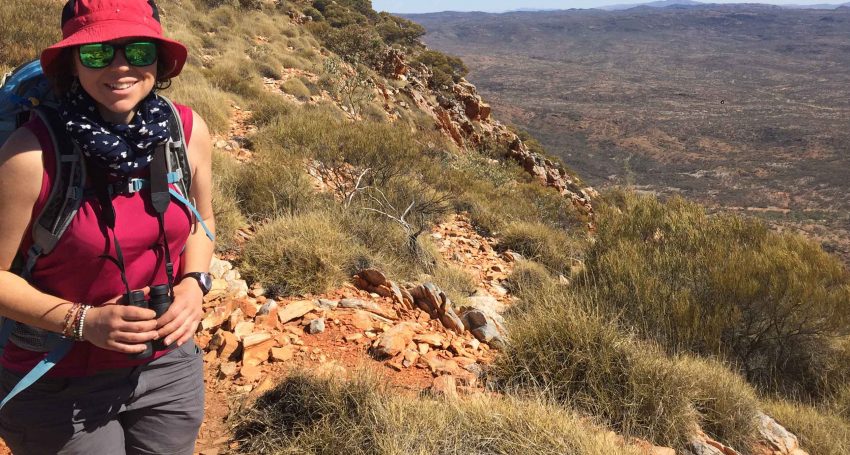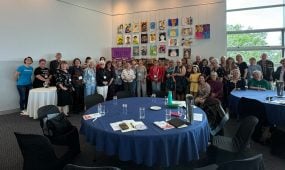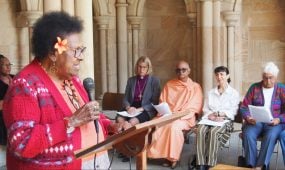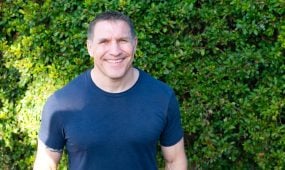Dialogue and grace
Reflections
Justice Unit Coordinator Jen Basham shares valuable lessons learnt during her formative early work years in social justice and policy roles: “I realise now there was an almost Providential thread that ran through all these early experiences. I had to learn a new paradigm of being: from debate to shared dialogue”

It’s an odd thing to train most of your life for something, in a way of being, only to realise when you hit the real world how very limited it can be.
I grew up a keen watcher of politics. I was the kind of kid who joined the debating club at school, and went onto university to study law and international relations. It was a great education in critical thinking, structured thinking, and in some respects, analysis.
But as I headed out into the world of work, I found myself drawn to areas outside of the policy and legal realm for which I had spent years training. It was here this formal training rubbed up against the real world in odd and unexpected ways.
Straight up, I stumbled into some corporate work in a refugee centre in Darwin, where I worked alongside people with experience in social work, community engagement and counselling. Whilst I had the skills to do the book-keeping, boring compliance and complicated reporting, I was at sea when it came to the core business – making people feel safe and welcome. I was not trained for helping people, who had been traumatised through war, persecution and conflict, to settle into our communities. Nor was I trained for working alongside those growing ethnic and social groups to both build their own vibrant, healthy communities, and integrate into wider society in the Top End.
Later, working in Victoria in the State Government, I had the opportunity in a single year to do a stint at Treasury during a budgeting cycle, whilst my regular job was with the Department of Communities and Planning. Treasury was full of sharp and clever people, with fine words, good hearts and great skills with spreadsheets. Treasury could balance budgets and make sure money was allocated a place. But it couldn’t help a local community overcome its poverty, it’s lack of safe space for kids to play and thrive, and it couldn’t give young people hope or employment. Heaps of money was being spent on these things, in lots of communities across the state, often with futile or short lived results.
Advertisement
All the evidence the Department of Communities had – all their research from Australia and around the world – was starting to show they couldn’t do it alone.
There was legislation and money and ideas from on high. And these were useful. But, when it came to real change – that had to be ‘owned’, at least in part, by the community. And for that to happen, people who were affected had to have a real stake in getting together – to think, talk about, and discern together what was best for their own backyard. They needed to be involved in creating, changing, building, or letting go, and work out how they could best work alongside their government to achieve this.
My third relevant experience was when I moved up around the Cairns region. As a development manager in Far North Queensland, I chanced upon an amazing role working with some Traditional Owners of beautiful sea and rainforest country. For the first few months, I was busy managing, as any young lawyer might. Focussed on compliance and the towering pile of obligations set out in their many agreements and contracts, I would set agendas, run meetings and try to drive activity to ‘get things done’. Eventually, I realised how tired and alone I felt.
Advertisement
I realised I had been talking at people, not with them. I had been listening waiting for a chance to hop in with my facts and opinions, rather than trying to listen deeply for the nuances and intentions and the hopes and fears that lay beneath the surfaces of what people often spoke about.
When I thought I was debating the next item to progress, I realised that my big lawyerly words and the power I held meant I wasn’t winning arguments with others, I was winning their silence. At its worst, I was trying to coerce people into action on compliance, not collaborating with people on their deepest desires for Country and culture. The latter is what really mattered.
And, at the start at least, we were not walking together on that journey.
The wisdom of hindsight! These were all formative experiences and I have had some years to reflect. I realise now there was an almost Providential thread that ran through all these early experiences.
I had to learn a new paradigm of being: from debate to shared dialogue1, from leading by controlling the room to leading by hosting a shared space, from starting with the desired outcome in my mind, to letting dialogue flow where it needed to go, that is, engaging emergence.2 I learnt that I had to make space for the spirit!
Our Parliament still fulfils a vital role. As do other similarly structured institutions, like our own church Synod. It is where legislation is negotiated, debated and passed; and this is important. They are structures and policies that hold us as a society or an organisation. And adversarial style debate is still one important way to advance these, to further governance and promote accountability.
Yet now more than ever as our social organisation and the shared challenges we face become ever more complex, the need for dialogue only grows. You can see it now, not just in the ‘community building’ manuals, but making its way into the management literature and business schools.3 This is because shared dialogue is a way to unleash a powerful shared vision, and concerted, collective action. It is a time-proven method for working through our most complex problems.
It is the old skill and way of being that we have known in the Church for hundreds of years. It is part of what is needed now, a rediscovery of something old, helping us to find our way together, into our unfolding future.
1 The Church of England has a nice little booklet, Grace and Dialogue, which includes a description the differences between ‘debate’ and ‘dialogue’
2 Peggy Holman has written Engaging Emergence
3 See for instance the Harvard Business Review piece on A Leader’s Framework for Decision Making





